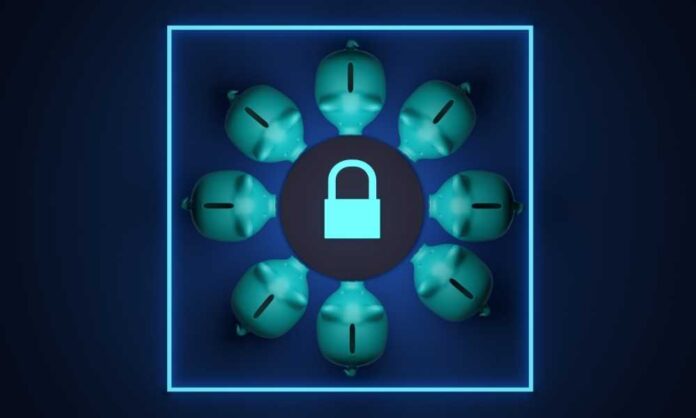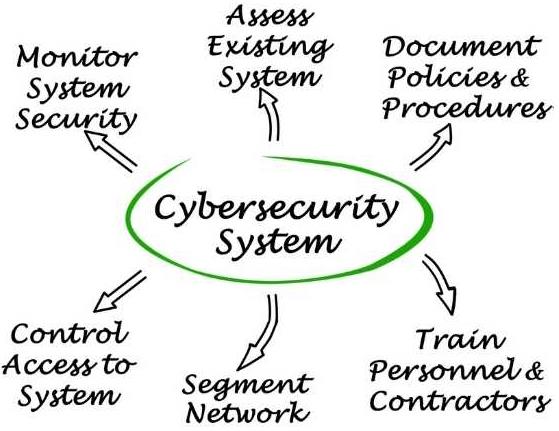If you think your website has nothing worth being hacked into, think again. Hackers are targeting all forms of websites. Victims of website hacks range from small blog sites, small business websites, medium business websites to big organizations such as the United Nations and the governments. Most website owners rush to establish an online presence without proper online security tips to protect their data and customers’ data. In the end, they end up falling victims to cyberattacks.
The responsibility of website security lies in the hands of the owners. However, most website owners claim that they do not have the technical know-how to protect their websites from hackers. This article explains 7 cybersecurity tips every website owner should know.
1. Frequently Update Your Software
Cybercriminals have sleepless nights trying to identify security flaws and vulnerabilities in software and operating systems. On the other hand, software developers and vendors will provide regular security fixes to address the security concerns. It is vital to ensure that your websites run on the latest software versions.
Hackers usually target websites that are running on old software versions. To be on the safe side, you must ensure that you analyze all the software on your website. Reviewing your software will help you identify those that need to be updated. You will then have to update all the software to ensure that your website runs on the latest software versions. The upgrades will equip your software with the latest security features that will help protect your website from hackers.
2. Use Strong and Unique Passwords
One of the best cybersecurity tips that will beef up your site security is the use of proper passwords. Passwords act like the lock that locks your website from external intruders and unauthorized access. The stronger the lock, the harder it will be for intruders to access your website.
You must ensure that you make your website passwords as strong as possible. For instance, you must create long passwords, make them complex by using random numbers, letters, and special characters. Your passwords should be unique. As a best practice, you should not use passwords that you have used anywhere else. People reuse the same password across multiple platforms, which poses a significant security risk.
3. Enable the malware Authentication
Two-factor authentication is one of the most vital online security tips that will go a long way into ensuring safety for your website and your website visitors. It is essential that when signing into your online accounts, you not only use your login credentials. It would be best if you beefed up the signing-in process by using an extra verification layer.
The 2FA double-checks the user’s identity to ensure that only valid users access your website. Users will have to enter a security code sent to their devices via email or text. Because hackers do not have access to your devices, they will not go past the extra authentication layer.
Other forms of 2FA include secret words and biometric features such as facial recognition, fingerprint IDs, and voice recognition technology. The primary purpose of the 2FA is to make the hacker’s life harder and deny them any opportunity to access your website.
4. Install an SSL Certificate on Your Website
No cybersecurity tips have been as effective in website security as the use of an SSL certificate. Although other cybersecurity tips carry much weight, the SSL certificate’s role in website security should be applauded.
The single letter S has a very significant impact on website security. If you are a keen and frequent internet user, you might have noticed that some website URLs begin with HTTP while others start with HTTPS. HTTPS stands for Hypertext Transfer Protocol Secure, a more advanced and secure version of the Hypertext Transfer Protocol. HTTPS has an SSL certificate that ensures the safe transfer of information between website servers and website visitors.
You need to purchase an SSL certificate today if you want to protect your website from hackers. The SSL will encrypt all your communication and sensitive information. It will convert them into a meaningless format that no one except the intended receiver can decipher. It will be meaningless for a hacker or intruder to try and intercept the communication because they would not decipher it.
As the best cybersecurity tips, you have no option but to purchase an SSL certificate. There are several SSL certificate options that you should consider for your website. Most importantly, ensure that you only purchase the certificate from trusted SSL certificate providers.
5. Carry Out Regular Data Backups
Doing everything on this list does not mean that you will be immune from website security risks. Hackers might eventually force their way into your website servers. It would be best if you planned for the worst-case scenarios. You cannot afford to close down your website because of a data breach. For this reason, you should always carry out regular data backups.
Performing frequent backups will minimize the impact of data breaches. It would help if you viewed data backups as some contingency plan that assures your website and business continuity long after a data breach.
You must keep the backups files safely. The best backup file storage strategy is offsite storage. External storage sources such as hard discs and cloud storage sources ensure that your backup files remain intact in case of a cyber breach. You can also save yourself from the hassle of conducting manual data backups by setting up automatic data backups.
6. Protect Your Website from Hackers
Hundreds of thousands of malware strains are created daily. Malware attackers are now targeting website servers. Such an attack could bring devastating repercussions to your site’s well-being. Google is now blocklisting malware websites. Do not allow your website and business to suffer the costly malware repercussions. You must put proper measures to ensure that your site is free from any form of malware.
For instance, you should install anti-malware software, conduct regular malware scans, carry out regular website updates and use web application firewalls. Such measures will protect your website and prevent it from being classified as a “malware website.”
7. Restrict File Uploads
Last but not least, on our list of best cybersecurity tips is restricting file uploads. Giving your web visitors freedom to upload files on your website could come with devastating repercussions. Hackers are likely to use that freedom to their advantage. They will upload risky files and malicious scripts that could bring down your website in no time when executed. Others might upload enormous files that will prevent your website from functioning normally.
The best solution will be to restrict file uploads. For instance, you can specify which file types your website should accept, set file size limits, scan all files for malware and store your upload folder externally. Such measures will help you prevent security threats such as Distributed Denial of Service attacks.
Conclusion
Websites are no longer safe havens like they used to be. Hackers are now targeting websites of all kinds. No website is safe. If you have a website, then you must take precautionary measures to prevent it from security threats. This article has explained seven tips that could help you achieve that.
Check out: How to Reduce Data Security Issues in eLearning App development


